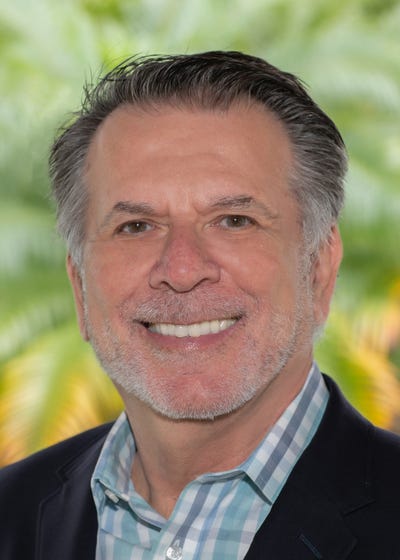Is the Report of the Death of TPAs Greatly Exaggerated?Is the Report of the Death of TPAs Greatly Exaggerated?
Many face existential challenges and only the ones willing and able to adapt will survive and flourish.

In 1897, Mark Twain is said to have read his own obituary, and then remarked, “The reports of my death are greatly exaggerated.” While some are predicting the diminution if not the demise of TPAs due in part to the growth of PEPs, fintechs and a focus on cost reduction as well as the growth of plans by payroll providers like Paychex, the evidence seems to be to the contrary.
Most major record keepers partner with independent third-party administrators, with Fidelity having been the notable exception. That changed in 2023 with a group headed by TPA veteran Beth Robinson, director, TPA, at Fidelity as they realized they were missing out on a lot of business which, according to Robinson, accounts for 60% of the under $50 million 401(k) market.
Across the board, record keepers noted the percentage of plans using a TPA, known as the unbundled service model, has remained consistent. And though most firms like Voya offer bundled solutions, Ralph Delsesto head of broker/dealer and TPA distribution, said, “More that 90% of our new sales use a TPA.” Though costs are generally higher, some providers subsidize the costs paying TPAs directly as they are doing some of the work that the record keeper would have had to perform.
While TPAs generally live in the under $10 million market, some will go larger. One $160 million plan sponsor that recently attended a TPSU program indicated she depends on her TPA and would never consider giving them up. TPAs can very helpful during M&A activity.
It makes sense that non-specialists want to use a TPA as most lack the basic understanding of ERISA, while specialists tend to gravitate to the bundled model partly because they work with larger plans but also because, according to Kasey Price, president of FuturePlan owned by Ascensus, “Specialists tend to be less open to introducing and working with a TPA … feeling it is easier for the record keeper to handle everything.”
One advisor at a provider due diligence meeting years ago elegantly noted about the virtues of the bundled model, “There is one throat to choke.”
“PEPs have impacted the number of plans using a TPA significantly,” noted Price, but that may be mitigated by the explosion of small 401(k) plans which is expected to increase by 50% from 2021 to 2029 to almost 1 million plans, according to Cerulli, due in part to state mandates and tax credits. Deb Rubin, senior vice president at Transamerica, said along with the TPA acting as the pooled plan provider, some plans within a PEP could use their own TPA just like they can do with advisor.
Payroll providers are growing exponentially, with Paychex claiming that 70% of new sales within a PEP do not use TPAs. This is also true of most fintechs, both deploying simple plan designs touting lower costs. Vestwell is the exception, which has worked with TPAs since 2022. It is led by Richard Tatum, president of Workplace Savings, who joined Vestwell two years after selling his TPA to FuturePlan to help TPAs better leverage technology and streamline processes like onboarding. Vestwell also integrates with payroll providers and provides real-time census information.
So long as defined contribution plans under ERISA are complex —some liken them to Old Testament Gods—with lots of rules and very unforgiving—there will be a need for TPAs just as companies and individuals need a CPA to navigate the Internal Revenue Code. As Heather Windjue, AVP, TPA Services at John Hancock, noted, the good TPAs make the complex seem simple.
But like all sectors of the DC ecosystem, TPAs must evolve and face what seems like existential threats, with some becoming an extension of a plans’ HR department. Karyn Dzurisin, American Funds' TPA plan counselor, said TPAs will remain busy helping clients with payroll integration, which is essential for efficient use of auto features,
For advisors and plans that want a simple, low-cost plan with few moving pieces, TPAs are not the right option. But for most of the market, especially wealth advisors who want to outsource as much of the work as possible, TPAs are an excellent solution. In fact, the small plan DC market exploded in the late 1990s and early 2000 when mutual fund providers like American Funds and insurance record keepers like John Hancock paired an advisor with a TPA to close and service the plan.
The war for talent has affected all sectors of the DC food chain, with some advisors noting diminished record keeper service, which struggles to hire and maintain high-quality talent, something many TPAs experience. These issues plague RPAs as well, many of whom might look to outsource compliance and some customer service tasks to TPAs to focus on the client experience as well as leveraging the convergence of wealth, retirement and benefits at work. Though the purchase of a TPA by Focus Financial years ago seems to have been an aberration, it would not be surprising to see others follow as they pursue opportunities in the DC market.
Questions remain:
Can they overcome and lean into the growth of PEPs?
Can they leverage AI and ChatGPT, which seem well suited for a rules based, data driven service?
Can they become extensions of the HR and payroll departments?
Can they leverage the explosion of small plans by partnering with wealth advisors?
Can they learn and better leverage technology?
And can they better partner with RPAs to allow them to focus on the convergence of wealth, retirement and benefits at the workplace?
So, while the death of TPAs is exaggerated, many face existential challenges and only the ones willing and able to adapt will survive and flourish.







